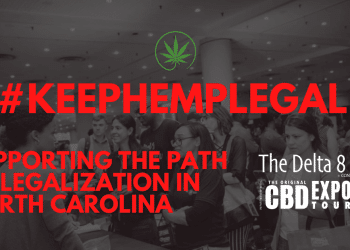Washington, DC: Members of the House Rules Committee have advanced the Marijuana Opportunity, Reinvestment, and Expungement (MORE) Act, HR 3884, which removes [cannabis] from the federal Controlled Substances Act — thereby eliminating the existing conflict between state and federal [cannabis] laws. The legislation is expected to be considered on the floor of the House of Representatives later this week.
“The historic nature of today’s progress cannot be overstated,” said NORML Political Director Justin Strekal. “For the first time in American history, the public will see the ‘People’s House’ vote to end the senseless, cruel, and racist policy of [cannabis] criminalization and prohibition.”
“We give our thanks to the leadership of Rules Committee Chairman Jim McGovern and to the hundreds of other members of Congress, their staffs, and other advocates and allies who worked diligently to ensure that we made it to this moment,” Strekal concluded.
To interview a member of NORML’s leadership about the bill, please email [email protected].
More information about MORE, [cannabis] policy broadly, and public polling
The MORE Act would end the federal prohibition and criminalization of [cannabis], thus providing individual states with the authority to be the primary arbiters of cannabis policy.
FURTHER: The MORE Act would also make several other important changes to federal [cannabis] policy, including:
- Facilitating the expungement of low-level, federal [cannabis] convictions, and incentivizing state and local governments to take similar actions;
- Creating pathways for ownership opportunities in the emerging regulated industry for local and diversely-reflective entrepreneurs through the Small Business Administration grant eligibility;
- Allowing veterans, for the first time, to obtain medical cannabis recommendations from their VA doctors;
- Removing the threat of deportation for immigrants accused of minor [cannabis] infractions or who are gainfully employed in the state-legal cannabis industry;
- Providing critical reinvestment grant opportunities for communities that have suffered disproportionate rates of [cannabis]-related enforcement actions.
Key Facts:
- According to a recent report by the ACLU, Black Americans are 3.6 times more likely to be arrested for cannabis-related crimes than white Americans.
- According to the FBI UCR, over 545,000 Americans were arrested for [cannabis]-related crimes in 2019 alone, over 90% of those arrested were charged with mere possession.
- The state-legal cannabis industry employs over 243,000 full-time workers; that is over four times the number of jobs specific to the coal industry.
- While the substance is not without harm, cannabis is objectively less harmful than legal and regulated alcohol and tobacco.
Polling:
Pew Research Center, Nov. 2019
Question: The use of [cannabis] should be made legal?
- Overall: 67% Yes – 32% No
- Democrats / Lean Democrats: 78% Yes – 20% No
- Republicans / Lean Republicans: 55% Yes – 44% No
Gallup Polling, Oct. 2020
Question: Do you think the use of [cannabis] should be made legal, or not?
- Overall: 68% Yes – 32% No
- Democrat: 83% Yes – 16% No
- Republicans: 48% Yes – 52% No
- Independents: 72% Yes – 27% No
Data for Progress, March 2020
Would you [support or oppose] fully legalizing [cannabis] at the national level? (Democrats only)
- 80% Support (60% strongly, 20% somewhat)
- Moderates: 69% support
- Liberal/Very Liberal: 87% support
- 14% Oppose (8% strongly, 6% oppose)
- Moderates: 19% oppose
- Liberal/Very Liberal: 9% oppose
As of right now, as far as House Leadership support, cosponsors include:
Assistant Speaker Ben Ray Lujan; Democratic Caucus Chairman Hakeem Jeffries; Caucus-Vice Chair Katherine Clark; Chairman Elliot Engel (Foreign Affairs); Chairman Peter DeFazio (Transportation and Infrastructure);Chairman Ted Deutch (Ethics); Chairman Raul Grijalva (Natural Resources); Chairwoman Zoe Lofgren (House Administration); Chairwoman Carolyn Maloney (Oversight and Reform); Chairman Jim McGovern (Rules); Chairman Jerry Nadler (Judiciary); Chairman Bobby Scott (Education and Labor); Chairman Mark Takano (Veterans Affairs); Chairman Bennie Thompson (Homeland Security); Chairwoman Nydia Velazquez (Small Business); Chairwoman Maxine Waters (Finance); Chairman John Yarmuth (Budget); and Cannabis Caucus co-Chairs Earl Blumenauer and Barbara Lee.
###
NORML advocates for changes in public policy so that the responsible possession and use of [cannabis] by adults is no longer subject to criminal penalties. NORML further advocates for a regulated commercial cannabis market so that activities involving the for-profit production and retail sale of cannabis and cannabis products are safe, transparent, consumer-friendly, and are subject to state and/or local licensure. Finally, NORML advocates for additional changes in legal and regulatory policies so that those who use [cannabis] responsibly are no longer face either social stigma or workplace discrimination, and so that those with past criminal records for [cannabis]-related violations have the opportunity to have their records automatically expunged.
Find out more at norml.org and read our Fact Sheets on the most common misconceptions and myths regarding reform efforts around the country
For Immediate Release
Contact:
[email protected]
![HISTORIC: Bill to End [Cannabis] Prohibition Clears Final Committee Ahead of Floor Consideration](https://extractionmagazine.com/wp-content/uploads/2021/01/shutterstock_1372434167-1000x563-1-750x422.jpg)












